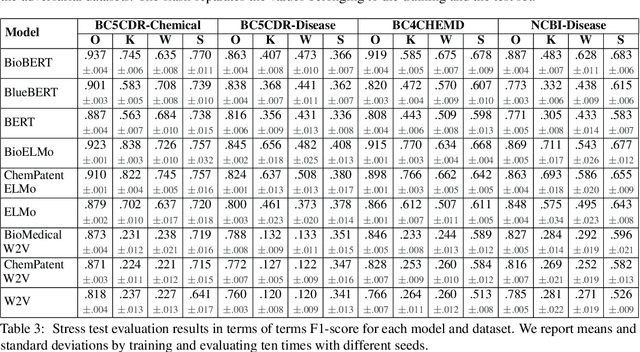Stress Test Evaluation of Biomedical Word Embeddings
Paper and Code
Jul 24, 2021



The success of pretrained word embeddings has motivated their use in the biomedical domain, with contextualized embeddings yielding remarkable results in several biomedical NLP tasks. However, there is a lack of research on quantifying their behavior under severe "stress" scenarios. In this work, we systematically evaluate three language models with adversarial examples -- automatically constructed tests that allow us to examine how robust the models are. We propose two types of stress scenarios focused on the biomedical named entity recognition (NER) task, one inspired by spelling errors and another based on the use of synonyms for medical terms. Our experiments with three benchmarks show that the performance of the original models decreases considerably, in addition to revealing their weaknesses and strengths. Finally, we show that adversarial training causes the models to improve their robustness and even to exceed the original performance in some cases.
 Add to Chrome
Add to Chrome Add to Firefox
Add to Firefox Add to Edge
Add to Edge